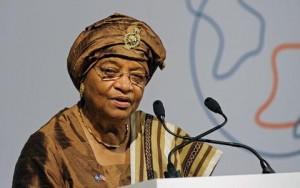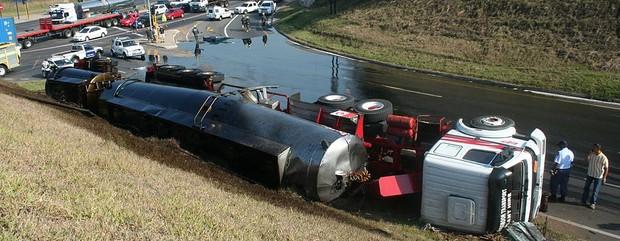Liberia’s Racialist Constitution Needs Reform – By Michael Keating

Liberia’s recently concluded referendum in which all of the government’s propositions were defeated should be the impetus for a serious look at an overall revising of the Constitution. The original American “settler” constitution of 1847 was the de facto law of the land until the “revolution” of 1980 which brought Samuel Doe and his People’s Redemption Council to power in an extremely bloody coup. The extrajudicial murders of the members of the Tolbert government on the part of Doe were so heinous that their new Constitution has clauses which make it illegal to consider retroactive prosecutions. The innocuous wording for this escape clause reads:
No court or other tribunal shall entertain any action whatsoever instituted against the Government of Liberia, whether before or after the coming into force of this Constitution or against any person or persons who assisted in any manner whatsoever in bringing about the change of Government of Liberia on the 12th day of April, 1980
The fact that the current government has allowed this article to stand says volumes about many of the people who are still in power. The fact that the current and accepted Constitution has language that validates the murderous People’s Redemption Council as a legitimate government is simply in bad taste considering the level of suffering they subsequently inflicted upon the nation.
Other aspects of the Constitution are equally troubling. Take its racialist description of who can be a citizen:
In order to preserve, foster and maintain the positive Liberian culture, values and character, only persons who are Negroes or of Negro descent shall qualify by birth or by naturalization to be citizens of Liberia.
In the 21st Century, language like this in not only appalling but reflects a complete lack of confidence on the part of Liberians that they could maintain control over their own country if foreigners (Lebanese, Chinese and Indians in Liberia’s case) were given citizenship and did not have to resort to deceitful marriages of convenience which is the current practice. There are other legislative ways that property rights can be managed, and a major overhaul of the land tenure system is to be wished, but to restrict citizenship to “negroes” is untenable, since that is a flimsy concept and firmly rooted in the “˜settler’ mentality that most Liberian’s would like to escape. Modern genetic science would also put the whole designation into a legal limbo.
Other restrictive clauses in the Constitution discuss who can be President and where they should come from.
The President shall be:
– the owner of unencumbered real property valued at not less than twenty five thousand dollars; and
– resident in the Republic ten years prior to his election, provided that the President and the Vice President shall not come from the same County.
The fact that a poor person cannot be President does not say much for Liberia’s notion of what a Democracy is. But it is the second of these items which caused such a stir in the last referendum. If taken seriously almost all of the existing 16 or so candidates would be disqualified. This is why the Sirleaf government urged a change to 5 years. Her pleas went unheeded so lawsuits, if not a full-blown constitutional crisis, looms.
Why candidates cannot come from the same county is also a mystery. Would it make that much difference if they came from two towns that lay just across county borders? The mind boggles, but it probably has something to do with traditional spoils and patronage systems rather than a search for parity.
Another anti-democratic element in the current Constitution which is a direct hold-over from settler practices is the one that states:
The President shall nominate and, with the consent of the Senate, appoint and commission
a) cabinet ministers, deputy and assistant cabinet ministers;
b) ambassadors, ministers, consuls; and
c) the Chief Justice and Associate Justices of the Supreme Court and judges of subordinate courts;
d) superintendents, other county officials and officials of other political sub divisions;
e) members of the military from the rank of lieutenant or its equivalent and above; and
f) marshals, deputy marshals, and sheriffs .
Points a, b and c are pretty standard but what about the rest? Essentially this allows for national executive control down to the city hall level throughout the country. In its defence, the Sirleaf government has made noises about allowing elections across the administrative spectrum but cites money as the reason it has not acted. Why it feels it needs to micro-manage the army and the national police is not so much a mystery as it is a reflection of “˜big man’ politics, only in this case it’s the “˜iron lady’ Sirleaf who is making all these selections. Crying poverty in order to avoid implementing democratic practices may ring true at the World Bank and IMF, but how can Liberia’s bi-lateral partners, not to mention the UN and EU, continue to support such reluctance?
The fact that only about 32% of the electorate turned out for the voting, many citing poor knowledge of what it was all about as their reason for staying home, does not bode well for a decisive, well-run Presidential election in a couple of weeks. The fact that the issue of term-limits was not even broached, an issue that many Liberians in fact care about, suggests the self-serving nature of the referendums on the part of the current government.
The National Election Commission, the body charged with running elections, has already embarrassed itself mightily by not bothering to have a proofreader take a look at the galleys of the ballots before they were printed in Denmark. (Why they had to be printed in Denmark and not in Liberia is another matter.)
The resultant error gave the people a choice between “˜age 75 or age 75′ as the retirement age for Supreme Court Justices. It’s not exactly clear how people were able to vote on this topic but the NEC said “˜no worries’, their error did not affect the outcome? How could it not?
More worrying than the foibles of the election commission are credible threats of violence coming from several quarters. Large caches of weapons have been found along the border with Cote d’Ivoire which is just recovering from its own brand of election violence.
It has become such an article of faith that the elections in Liberia will be violently contested that the President has been rumoured to be asking for a contingent of ECOWAS military and police personnel to act as additional peacekeepers on top of the 10,000 plus UN troops already on the ground. (No mention was made of using the Liberian military – which is just as well as apparently their US funded training has not been going well.)
Opponents of the President are crying foul and describe it as illegal. Her supporters say it is legal under the terms of the peace agreement. The one place where an issue like this should be resolved is in the national constitution but about this, as in so many other highly critical issues, it is silent.
The people of Liberia need their voice.
Michael Keating is a Lecturer in International Relations at the University of Massachusetts Boston with a special interest in the Mano River countries of West Africa.
He can be reached at: [email protected]





